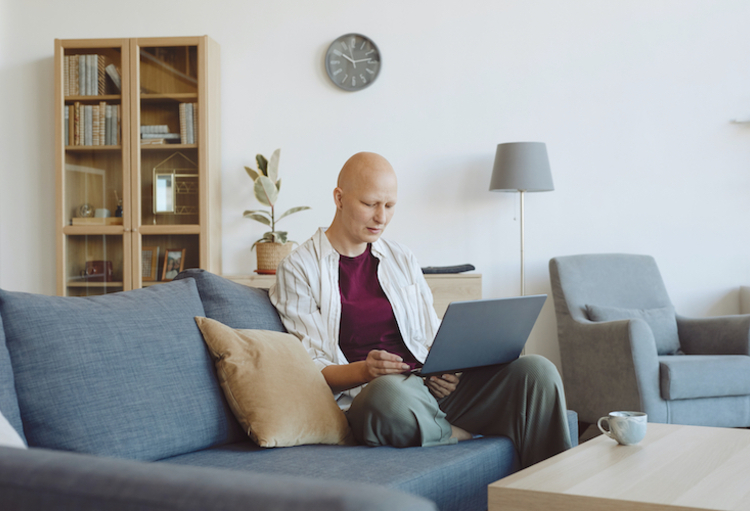Patients with advanced cancer benefit as much from virtual palliative care as they do from traditional face-to-face care, according to new research presented recently at the American Society of Clinical Oncology’s annual meeting in Chicago.
“Palliative care is about quality of life,” says Joseph Greer, a psychologist at Mass General Hospital Cancer Center (Boston) and lead author of the paper. Stady. “Think about symptom management, emotional and functional well-being, and spiritual support.”
He and his colleague at the same hospital, oncologist Jennifer Timmel, previously showed that if doctors start palliative care early enough, patients live longer compared to their peers who did not receive early palliative care.
No difference
Providing palliative care virtually could ensure that more patients receive this type of care – at least if we can assume that it is no less effective than the traditional method. To find out, Greer and Temel began their study seven years ago of 1,250 patients with advanced lung cancer. Half of them received palliative care via teleconsultations, while the other half came for monthly consultations in hospital.
After the study, there appeared to be no statistically significant difference between the two groups in terms of symptoms of depression and anxiety, use of coping mechanisms, or insight into their treatment and cancer diagnosis. A number of patients and their caregivers were also included in the study, and both groups reported similar results in terms of satisfaction with the program and emotional symptoms.
Advantages
These findings are a reason to continue or even expand telepalliative care programs, especially when considering the intangible benefits of virtual visits, says Elizabeth Lugers, MD, an oncologist and palliative care specialist at Fred Hutchinson Cancer Center (Seattle). “Virtual palliative care offers a number of benefits. Patients can simply sit at home in their pajamas, and caregivers or other interested parties can participate in the conversation from anywhere. Appointments can also be scheduled for times when the patient is feeling their worst and is not He really feels like going to the hospital for an in-person appointment.
In addition, remote consultations can enhance the effectiveness of the healthcare system. “Doctors should not wait for patients to register at the hospital, or if they are late for their appointment.”
More patients
Palliative care experts are also looking for other ways to help more patients. In another a summary Jennifer Timmel, who presented at the ASCO meeting in Chicago, showed that the frequency of palliative care visits can be reduced for patients with fewer physical or emotional symptoms — even without losing the effectiveness of palliative care. “We hope these studies will help more centers find ways to offer palliative care to more of their patients. Because we know it’s the best way to care for patients and we want to work to ensure more patients have access to this vital support.”
Access to all functions is reserved for professional healthcare providers.
If you are a healthcare professional, please log in or register for free to gain full access to this content.
If you are a journalist or would like to let us know, please write to redactie@rmnet.be.

“Coffee buff. Twitter fanatic. Tv practitioner. Social media advocate. Pop culture ninja.”











More Stories
Which can cause an increase in nitrogen.
The Central State Real Estate Agency has no additional space to accommodate Ukrainians.
The oystercatcher, the “unlucky national bird,” is increasingly breeding on rooftops.